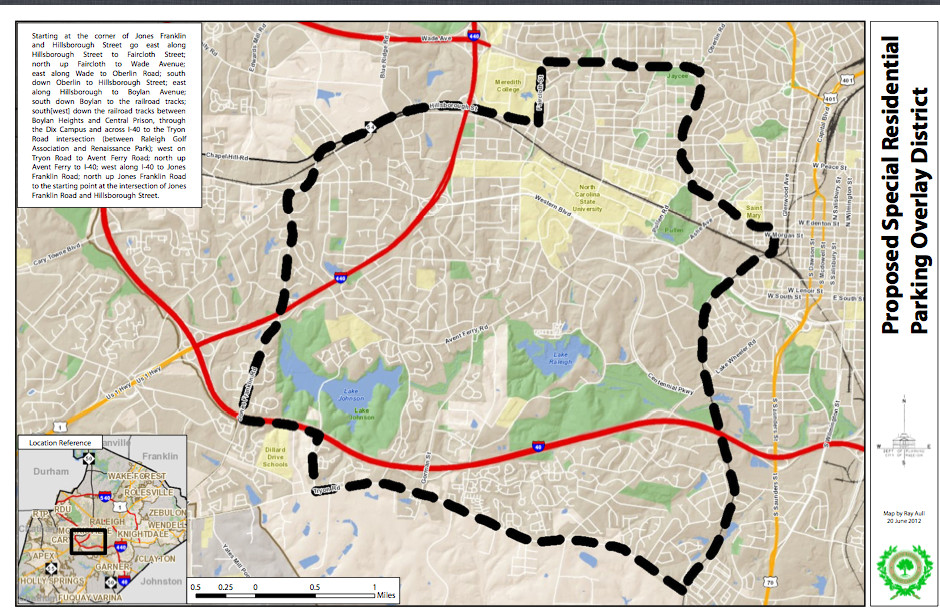The long debate about front-yard parking continued at a public hearing Tuesday and, as in the past, the feedback was mixed.
The new law was passed in June, but rather than create a citywide ban, councilors agreed to implement the law using overlay zoning districts to cover specific geographic areas. The law will not be enforced until councilors choose one or more districts in which to ban front-yard parking.
Southwest Raleigh is the district with the highest number of offenders — or at least complaints — because of its proximity to N.C. State University and the related high number of rental houses.
If approved by councilors, an overlay there would cover about 8,200 acres and about 12,000 residents.
Residents would then be prohibited from using their front yards for additional parking when there is no driveway or on-street parking available. Those who want to add additional parking would be required to construct a paved surface no larger than 40 percent of the front yard.
The general border of this potential overlay runs along Jones Franklin Road, Hillsborough Street, Wade Avenue, the railroad tracks and Tyron Road.

City of Raleigh
Click to view full size.
[media-credit name=”City of Raleigh” align=”aligncenter” width=”600″][/media-credit]
The only exceptions to the rule would be homes on major thoroughfares where residents would be unable to park on the street or existing unimproved parking areas.
Resident Chad Meadows spoke for the rule at Tuesday’s hearing. He said he’s been in favor of the law since he acted as chair of the Appearance Commission in 2004.
Meadows said opponents will say the law singles out students, adds a financial burden and is unfair, but, “Is it fair to ask property owners who work on managing and maintaining their properties to take on the negative impacts from neighbors who choose not to?”
University Park resident Evan Kane said his area is ground zero for front-yard parking and it became a problem when much of the housing became rental properties with multiple tenants. He called the law a workable and reasonable solution to the neighborhood’s concerns.
When prompted by another resident, about 15 people stood up to show their support for the law.
Speaking in opposition, Jerome Goldberg said he has been waiting to see statistics that would show how it would affect residents and how many houses would be affected.
Goldberg said he believes the only reason why the law is under consideration for Southwest Raleigh is because the district’s councilor, Thomas Crowder, wants to stop rentals in the area.
Another resident, Stephen Karvwatt, said he was the lone opposing vote at a July Wade Citizen’s Advisory Council meeting. He questioned how the city would enforce the law outside normal business hours and asked why other types of properties, such as duplexes, don’t fall under the law.
Karvwatt said it is already unsafe to park where he lives on Brooks Avenue and adding more cars to the street will make the problem worse. He suggested officials consider why people park on the grass.
“The underlying reason for the problem is not being addressed,” he said.
Some residents said there are other issues in their neighborhood that they would rather see addressed, such as stormwater runoff and the lack of sidewalks.
As with other overlay districts, this district will be reviewed by the Planning Commission before council members take a final vote.
